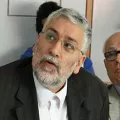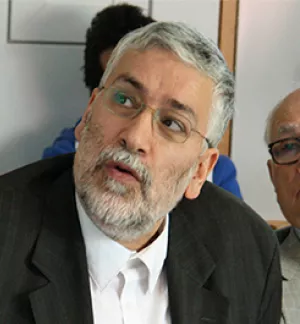After Mahmoud Ahmadi-Nejad, Iran's president, announced on April 11 that his country had succeeded in completing a uranium enrichment cycle, Iran's diplomatic machine went into overdrive to try to impress world opinion. The latest moves include a letter sent this week by Mr Ahmadi-Nejad to George W. Bush, his US counterpart, and the Iranian president's diplomatic tour launched yesterday to Asia and European capitals. The latter suggests that Iran will look increasingly to Asia and its own region for diplomatic and economic ties.
Meanwhile, members of the United Nations Security Council have failed to agree a joint strategy for dealing with Iran. Russia and China have been resisting a UN Security Council resolution — sponsored by the UK and France and backed by the US — requiring Iran to halt uranium enrichment. Moscow and Beijing want a resolution but oppose invoking Chapter 7 of the UN Charter, which can authorise economic sanctions or military action as a last resort. Russia and China fear that too much pressure on Iran would be counterproductive and precipitate an oil crisis. Both worry that America would use a resolution under Chapter 7 to justify military action.
Reports suggest that Tehran's official joy over the nuclear breakthrough is shared by a large segment of Iranian society. Such reports should not be taken as evidence that the Iranian people share their government's views, and should not be used as a pretext for using force against Iran's population.
To start with the basics: Iran is a signatory of the nuclear non-proliferation treaty and its additional protocol. Legally, it has the right to produce enriched uranium for civilian purposes, provided it accepts International Atomic Energy Agency safeguards and supervision. Already, however, there is widespread concern in the US, Europe, Russia, China and among Iran's neighbours over Iranian nuclear activities, access to nuclear weapons and safety issues that may arise due to the use of Russian technology in the Bushehr power plant, which is very close to the Persian Gulf.
Yet, western pressures in the form of US-imposed comprehensive sanctions, the European Union's proposal for "smart" sanctions, investigations by the IAEA, condemnation by the IAEA's board of governors and a UN Security Council demand for a report on Iran's nuclear activities have failed to break the deadlock. On the contrary, Iran has followed through on its project to attain nuclear technology.
How should we interpret the situation? First, Iran wants recognition and readmission into international society. Iranians have no desire for international isolation. The government of Iran is part of — and must be responsive to — Iranian society. That society, including scholars, clerics, business people and, more generally, the middle class, prefers to conduct its business in a stable international environment. That means Iran must be part of the global picture.
US threats are not seen as being directed against Iran's government but against Iranians in general. The same is true of US sanctions which affect all aspects of ordinary Iranians' lives. No one in Iran can purchase a novel from amazon.com because Iran is excluded from the list of countries where people can purchase books electronically.
Second, the general public does not consider the nuclear issue to be of vital importance. Nuclear technology will do little for the average Iranian — it cannot create more jobs for a country that needs 1m jobs annually, it cannot change the chronic low efficiency, productivity and effectiveness of the economy and management, and it will do nothing to improve Iran's commercial ties with the rest of the world.
Third, much of Iran's political elite does not seem ready to engage in a risky undertaking that might jeopardise the very existence of the Islamic government. Iran has a track record of rational action over the past 27 years in a turbulent region. Even after Mr Ahmadi-Nejad's declarations, pragmatists within the government have shown willingness to negotiate. Akbar Hashemi Rafsanjani, chairman of the Expediency Council, Ali Larijani, secretary of the Supreme National Security Council, and Mohammad Reza Bahonar, deputy speaker of the parliament, have all publicly stated their readiness to engage in dialogue. In short, the best remedy to the nuclear crisis over Iran does not lie in aggressive action but in patience, debate and compromise between all concerned parties.
The writer, senior research fellow in Harvard University's Kennedy School of Government, was a senior Iranian foreign ministry official 1980–97.
Maleki, Abbas. “Iran Is Eager to Defuse the Nuclear Squabble.” Financial Times, May 10, 2006


